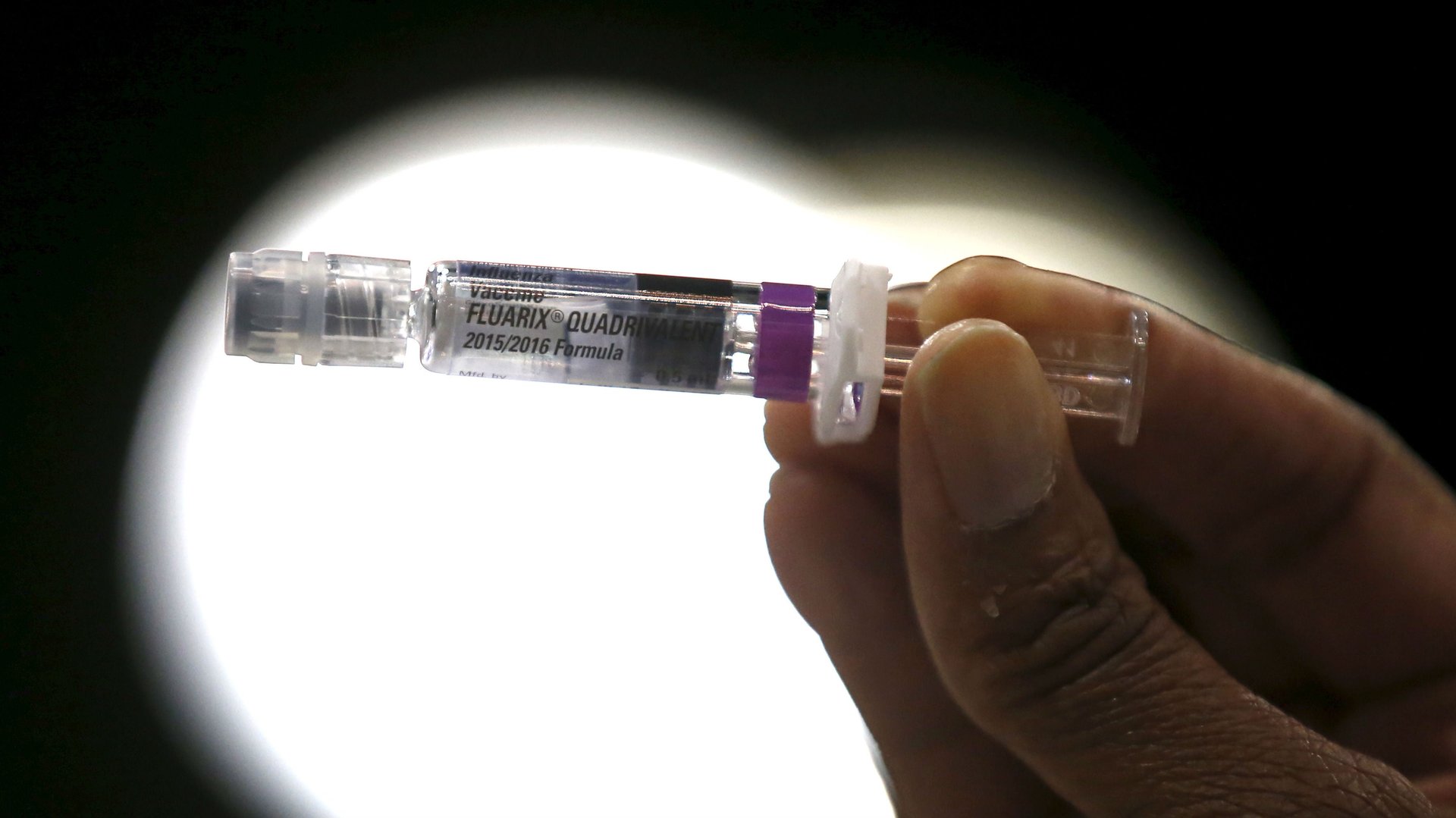The myth linking vaccines to autism gets debunked by the largest study to date on the subject
Scientists in Denmark today published the largest study to date showing there is no definitive link between the vaccine for the mumps, measles, and rubella (MMR) and the development of autism.


Scientists in Denmark today published the largest study to date showing there is no definitive link between the vaccine for the mumps, measles, and rubella (MMR) and the development of autism.
The finding pokes yet another hole in the conspiracy theory held by a vocal subset of people who are extremely skeptical of the use of vaccines, and in many cases are working to change public policy around the administration of the medicines.
The Danish researchers designed a nationwide study that included 657,461 children born between January 1999 and December 2010. Over the course of a decade, the subjects participated in follow-up exams. Of those children—not all of whom were vaccinated—6,517 went on to develop autism. The scientists analyzed those data, and concluded that the relative risk of developing autism after being administered an MMR vaccine was 0.93—statistically non-existent.
The research, published in the Annals of Internal Medicine, is significant because it represents the largest single study to date on this issue. It’s not the only study to have found no link between the vaccine and autism. At least two studies published in the journal Vaccine, as well as studies published by the New England Journal of Medicine and the Journal of the American Medical Association have also shown there’s no correlation between vaccines and autism risk. Further, some studies have even shown that vaccinations have unintended benefits.
“It allows us to conclude from one study that even minute increases in autism risk after MMR vaccination are unlikely,” the study states.
It’s also important because, in the last two decades, a social movement against vaccinations has gathered steam. Some people oppose them on religious grounds. Others see mandatory vaccination as interference by the government. And still others are concerned about the safety or efficacy of vaccines, in general. Public health authorities have come to see resistance to vaccinations as a risk to the greater population.
The World Health Organization this year listed “vaccine hesitancy” among its Top 10 threats to global health. Indeed, in 2018, a widely-reported measles outbreak was attributed, in part, to a movement of so-called “anti-vaxxers.” The Guardian last week (Feb. 28) reported that communities of vaccine skeptics often use Facebook to deploy harassment campaigns attacking public health officials and others who support policies supporting vaccine use.
Pushback on vaccinations entered the mainstream shortly after a study was published in 1998 in the journal The Lancet, which linked the MMR vaccine to autism. The study has since been retracted after it was discovered that several elements of the paper were incorrect. But those who have bought into the conspiracy, and ignore all the research that has proven otherwise, remain a threat to public health, according to nearly every expert.
“Vaccination is one of the most cost-effective ways of avoiding disease,” the World Health Organization says on its site. “It currently prevents 2-3 million deaths a year, and a further 1.5 million could be avoided if global coverage of vaccinations improved.”